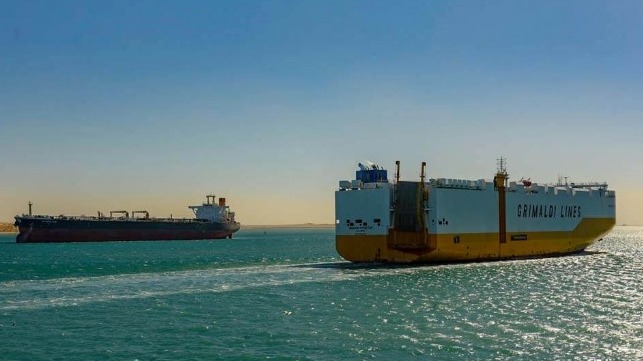UN Warns of Growing Threat to Global Trade Due to Convergence of Challenges

UN officials are sounding the alarm on the growing global impact to trade from the mounting problems ranging from the Black Sea to the Suez and Panama Canals, and now the security problems in the Red Sea. The United Nations Conference on Trade and Development (UNCTAD) issued a statement expressing its “profound concern” over the escalating disruptions in global trade, making its statement hours before a Houthis missile strike started a fire on a product tanker and set off new fears in the energy community.
“UNCTAD underscores the far-reaching economic implications of these disruptions,” the group said in its statement. “Developing countries are particularly vulnerable to these disruptions and UNCTAD remains vigilant in monitoring the evolving situation. The organization emphasizes the urgent need for swift adaptations from the shipping industry and robust international cooperation to navigate the rapid reshaping of global trade dynamics.”
The organization is seeking to highlight what it sees as the near “perfect storm” emerging in the growing disruptions around the globe. They point to the ongoing conflict in the Ukraine which is nearing its second anniversary saying it has triggered substantial shifts in oil and grain trades reshaping established trade patterns. They highlight that the war in Ukraine compounded with the new problems around the globe are “reverberating in global food prices.”
Added to the problems from the Black Sea, they point to the dramatic decline in transits at the Panama Canal due to climate change and the ongoing drought in Panama. They point out that daily transits are down by “a staggering 36 percent reduction” in December versus the year earlier.
“The crisis in the Red Sea, marked by Houthi-led attacks disrupting shipping routes, has added another layer of complexity,” UNCTAD writes. The Chief of Trade Logistics at UNCTAD Jan Hoffmann told reporters it is having a “dramatic impact” severely disrupting shipping.
By UNCTAD’s calculations, containership transits are down 67 percent at the Suez Canal versus a year ago. Even before today’s Houthi attacks, UNCTAD warned the problem was expanding to tankers and gas shipments, which they said have stopped passing through the Suez Canal since January 16. UNCTAD estimates Suez Canal transits are down by 42 percent over the last two months.
UNCTAD underscores the critical role maritime transport plays as the backbone of international trade, responsible for over 80 percent of the global movement of goods saying the disruptions from the Red Sea plus the pre-existing disruptions to global trade caused by the war in Ukraine and the abnormally low water levels in the Panama Canal are combining to drive up prices and threaten trade. They use as examples the fact that average shipping costs from Shanghai have more than doubled since early December while those to Europe have more than tripled.
They express concern that energy prices are witnessing a surge as gas transits are discontinued. They worry this is also directly impacting energy supplies, especially in Europe.
“The cumulative effect of these disruptions translates into extended cargo travel distances, escalating trade costs, and a surge in greenhouse gas emissions from shipping having to travel greater distances and at greater speed,” warns UNCTAD.
They conclude that the current challenges underscore trade's vulnerability to geopolitical tensions and climate-related challenges, demanding collective efforts for sustainable solutions especially in support of countries more vulnerable to these shocks.
No comments:
Post a Comment